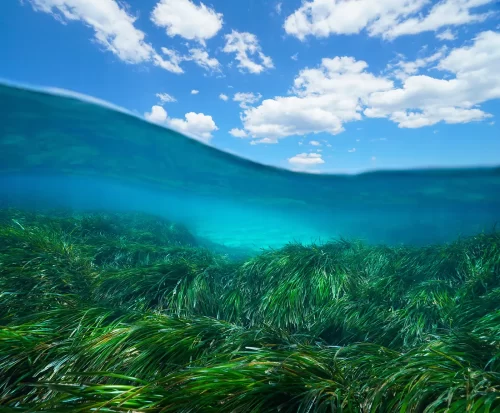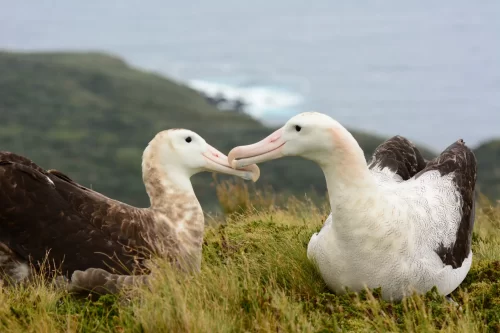
The Issue
Ecuador is the largest tuna fishing nation in the eastern Pacific, and seafood exports are one of its top three sources of income. The country’s waters and adjacent high seas are home to some of the world’s most valuable fisheries, with tuna, jumbo squid and large pelagic fish targeted by international fleets.
The country is also home to one of the world’s most important marine sites: the Galápagos Marine Reserve. The reserve’s protected waters cover 133,000 square kilometers (55,312 square miles) and contain more than 2,900 marine species, a quarter of which are found nowhere else. In 2022, Ecuador expanded protection with the adjoining Hermandad Marine Reserve, safeguarding another 30,000 square kilometers (11,583 square miles) of migratory waters used by sharks, whales, sea turtles and manta rays.
But Ecuador has struggled when it comes to managing its valuable fisheries. In 2019, the Latin American country was given a yellow card by the European Commission after being accused of inadequate enforcement efforts to address IUU fishing.
To counter that, Ecuador took steps to strengthen fisheries management and clamp down on illegal, unreported and unregulated (IUU) fishing within its waters. In 2020, it introduced new measures to safeguard fishery resources that included more severe penalties for offenders.
Our Work
In 2021, Ecuador published data from its vessel monitoring system on the Global Fishing Watch map, making the movements of the country’s 700-strong industrial fishing fleet plus some 500 smaller vessels visible to the world. This comprehensive picture allows relevant authorities to see where vessels have been fishing and identify potentially suspicious activity, such as fishing within a protected area.
As part of our partnership with Ecuador, we are not only bolstering the country’s efforts to curb IUU fishing but we are also supporting their implementation of the Port State Measures Agreement—an international treaty that aims to curb illegal fishing through tighter controls on foreign-flagged vessels entering port. This includes collaborating with the Ecuadorian Navy in the offshore border of Ecuador’s national waters, where international fleets compete for access to squid, tuna and other high-value species.
Ecuador is part of a growing group of countries embracing fisheries transparency in the region, which include Belize, Brazil, Chile, Costa Rica, Panama, and Peru. In 2021, at the 34th Session of the Committee on Fisheries, Ecuador was one of six nations that declared its support for fisheries transparency, promoting the management of its exclusive economic zone through the application of high-tech surveillance and monitoring platforms.

